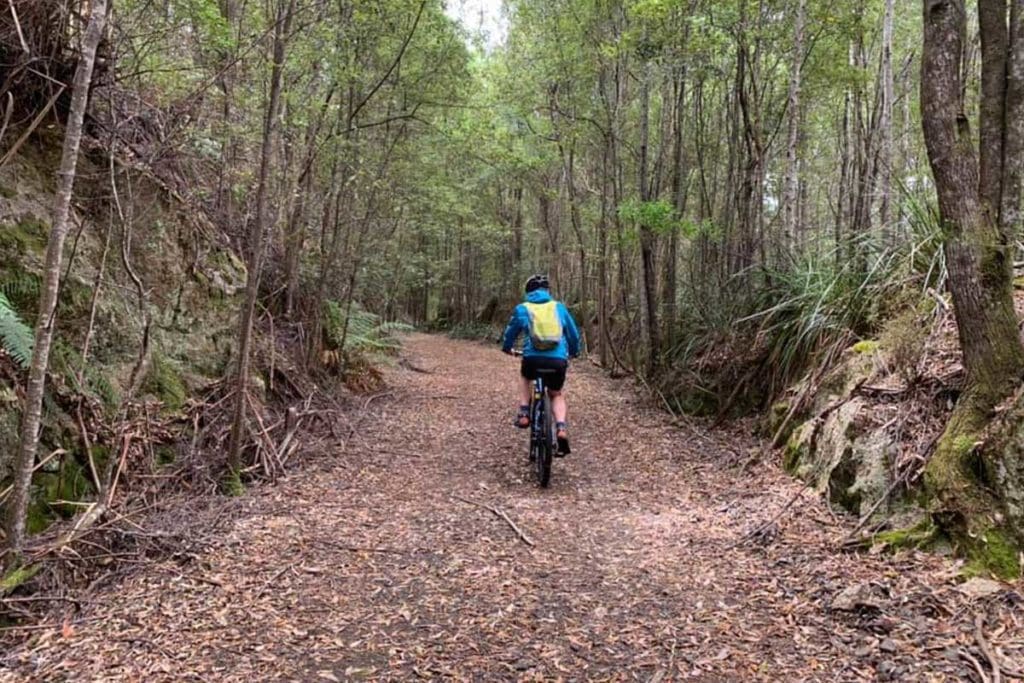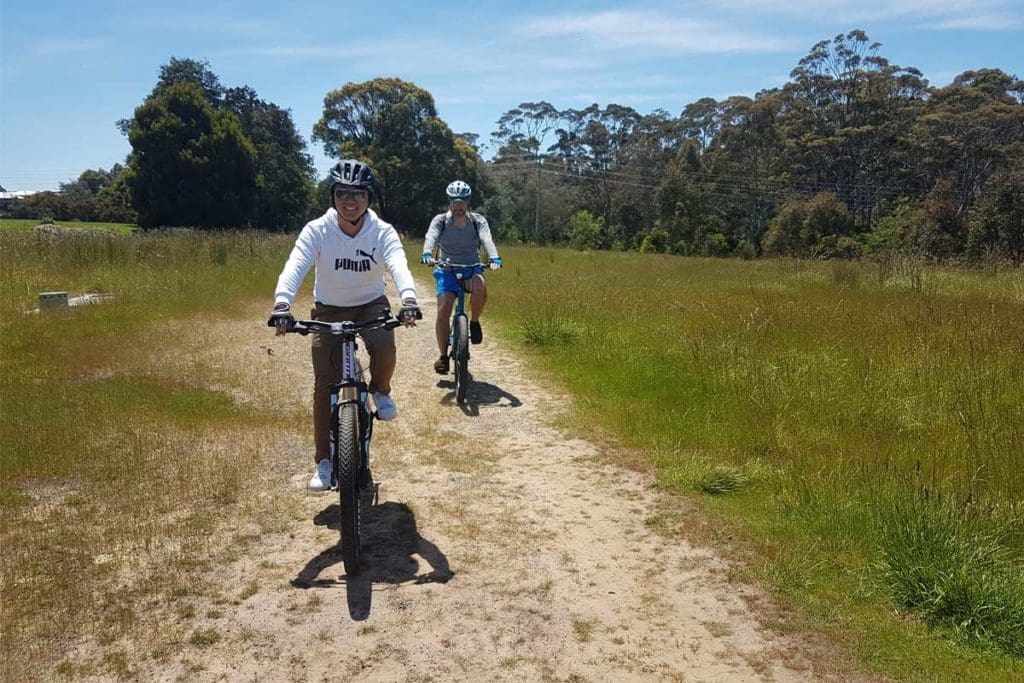Tasmanian Rail Trail Extension Gets Launceston Council Green Light

Lilydale, Tasmania
A proposed 41km extension of northern Tasmania’s North East Rail Trail has cleared a major milestone, with Launceston Council last week giving approval for the section within its boundaries.
City of Launceston’s decision to approve its 14km section, from Wyena to Lilydale Falls Reserve, comes a year after the neighbouring Dorset Council endorsed its own 27km stretch to Scottsdale.
A Tasmanian spokesperson for cycle advocacy group Bicycle Network says an extended Scottsdale to Lilyvale Falls rail trail will be an important pioneer for rail trails in that State.
“We have been really keenly watching the progress of this trail because once it’s up and running, it will be a really good example for people to understand their potential,” she said.
Its success as a major tourism attraction and economic driver would clear a path for a lot more rail trails in the State, by diffusing concerns aired by opponents in the community, including heritage train advocates.
Vital Piece in the Puzzle
Dorset Mayor Greg Howard previously said the Wyena to Lilydale Falls section was essential for the extension to proceed, building on the original 26km trail built a decade ago from Billycock Hill to Scottsdale.
He said extending the trail to Lilydale falls not only provided sufficient length and attractions to attract interstate and overseas visitors. It also ensured there was a major destination at each trail head – Scottsdale in the east and Lilydale Falls at the western end.
“Having that total of 68km means there’s two, maybe three, days of riding because there’s a couple of towns, there’s a winery, a lavender farm. There’s plenty to have a look at along the way,” he said last September.
“While the existing trail is used by locals and visitors to the nearby Derby mountain bike trails, we need all of that Stage 2 extension to make it a viable tourism opportunity for interstate and international visitors.”
Last week’s council decision opens the door for Dorset Council to apply to the Tasmanian Minister for Infrastructure to give approval to remove the rails on the disused train corridor and start work.
He said the council would now wait for the “inevitable” submission that would come from heritage train supporters during a 14-day period of appeals against the decision.
“I would imagine the grounds for appeal they’ve got left, that haven’t been dismissed from the Scottsdale end of the line, are probably fairly limited. They might try to lodge the same appeal grounds, which the planning commission would normally refuse to accept,” the Mayor said.
“Outside those grounds, I’m struggling to think what their appeals might be. But there might be some individual things, given the Launceston planning system is significantly different to ours.
“If there is an appeal, and their almost certainly will be one, we will then have to wait for that to be dealt with – which could take two or three months.
“It would then be a case of calling for tenders. We need to get into it, especially the removal of rails, during spring and into early summer, because any cutting of rails would become a fire hazard in late summer.”
He said if the Minister for Infrastructure does give approval to remove the rails, he would also need to give interested parties to opportunity to apply to receive some of that infrastructure … a process that would take another six months for applications and infrastructure removal.
“The Minister will also need to give us permission to remove the rails but that should be a mere formality because they’ve promised all the way through that they would do that,” he added.
“Now that Launceston council is onboard, I’m pretty confident it will happen.”
Regular train services between Scottsdale and Launceston ended in 2005 and the original section of rail trail was constructed in 2012 by volunteers, funded by selling the rails and sleepers made available by the Tasmanian rail authority, TasRail.
In 2014, the Federal Government announced $1.47 million in funding for the Stage 2 extension but the offer lapsed while the project was stalled by challenges from opponents.
The funding was reinstated in 2019, this time without a deadline and without requirements for financial contributions from Dorset Council, and in February 2020 the council resolved to proceed with the Stage 2 extension.
The development application for the Launceston council area was advertised just weeks before Tasmania’s local government elections in October, amid ongoing opposition from the Launceston & North East Railways group and its push for a heritage railway along the corridor.
Cr Howard claimed a narrow win at the October election, earning a third term as Mayor and the opportunity to pursue what he called “unfinished business”, including taking the Stage 2 extension.
Parking Disagreement
According to a report by cycling advocacy group Bicycle Network, an initial development application to the Launceston council last August was held up by disagreement over a new parking area at Lilydale Falls.
The council had requested Dorset Council construct a new sealed carpark but community members opposed the proposal because it would require the removal of trees and grassed area.
Instead, last week’s Launceston council meeting approved an expansion of the existing carpark to 20 parking spaces, a disability space, a shuttlebus space and three campervan spaces.

New Back on Your Bike Session for Mountain Biking
This year’s Bike Week activities in Tasmania, on 6th to 12th March, will have a new focus on off-road cycling, with Bicycle Network expanding its Back on Your Bike training series to include a new session for mountain biking.
A riding instructor will work with small groups at Queens Domain, a sports facility on the outskirts of Hobart with a very gentle introductory mountain bike track.
The session, on Sunday 5th March, will teach mountain biking newcomers the technical basics on cycling on dirt.
“Mountain biking is huge is Tasmania because we have such great trails,” according to Bicycle Network’s public affairs manager for Tasmania, Alison Hetherington.
“Mountain bike trails recently opened at Georgetown, so there are now trails adjacent to every major urban centre in Tasmania.
“But for people who are not confident riders, it can be truly overwhelming to go to those places.
“This Back on Your Bike session will get them used to riding on gravel – how to corner and so on – before they get into the more technical skills of mountain biking.”
